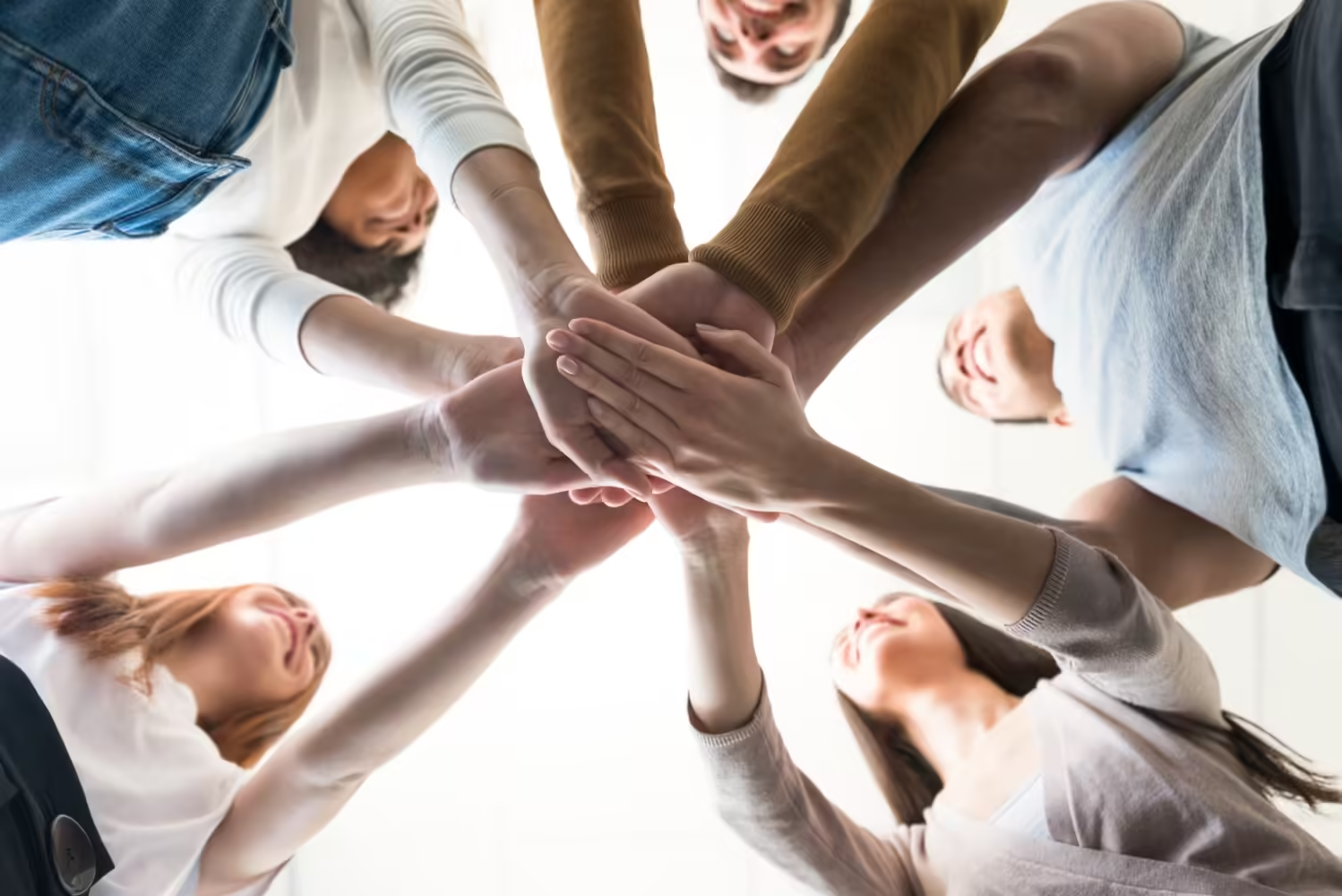Climate change is a fast-moving field, so we’ve completely rebooted our workshops to concentrate on the key issues relevant to your students. As climate science moves forward, so will our workshops.
Importantly, we’re laser-focused on the skills and experience your students can use to flourish in a fast-changing world.
Our strategy is facilitating and mentoring students, empowering them through carefully-crafted activities to discover their own solutions by solving problems.
Six unique single-session workshops investigate a wide range of challenges: solutions are discovered through active listening – in a world of shouting, we have an intelligent alternative.
Aiming for win-win outcomes, participants will research, analyse, collaborate and negotiate their way to their own solutions. As in real life, there are no perfect outcomes: pragmatic beats perfect, and it’s the process of learning that is the winner here.
Additionally, two SuperSessions seamlessly transition within a common theme between a morning session where challenges are discussed and evaluated, leading into an afternoon session where solutions are developed based on the morning’s analysis.
We offer the option of post-workshop continued development through our subscription model, where you can access innovative additional activity resources with guidance, enabling your staff to embed and build upon their students’ new skills, refining them with your own insights.
We are also planning a user community, to showcase your ingenuity and creativity for the benefit of others.
Learning
Three huge systems make the blue Planet green – oceans, atmosphere and life itself.
We explore these fundamental Earth systems and their impact on climate. We examine what climate change is, how it has changed in the past, how and why it is changing now, and how we know.
We then look at invisible greenhouse gases – we’ll discover how they actually affect our world, how we measure them, and why feedback loops, long-term effects and delayed reactions (latency) make it so hard to control them.
Where we are
COP out? We’ll touch on international agreements designed to get nations to work together on this global problem, and ask – are they working? What more needs to be done? Could you have a voice?
Analysis
Through our fantastic simulator EN-ROADS, and with the help of an accredited expert facilitator, we’ll work in teams to craft effective combinations of actions to reduce Earth’s temperature.
Presenting and justifying their choices, in real time your Climate Champions will see the extraordinary impacts their choices can have.
We’ll discover that there are no ‘easy fixes’, and that human and natural systems are complex and interlinked – so will be our solutions.
What’s being done?
Fighting climate anxiety, we show the amazing things already being done to fight climate change. We look at technologies, groups and people leading the way.
What can we do?
Finally, we’ll see how we can translate successful interventions into local projects designed to motivate your communities to become Agents of Change.
What skills have you used today? How can you use those skills as a Climate Champion?
We will reflect on what we’ve achieved, and how we can use those achievements to be Climate Champions, making a difference in our communities.

Learning
In this workshop we explore the intricate relationship between climate and the natural world. We’ll investigate how climate change impacts ecosystems and, in turn, how these changes affect human societies.
Nature has been designing sustainable systems for billions of years. From the smallest microorganisms to the largest ecosystems, we’ll investigate the remarkable solutions that nature has devised to thrive flexibly in diverse and challenging conditions.
By understanding and emulating these natural systems and processes, we can create a more sustainable and resilient and harmonious future for humanity, and gain valuable insights into sustainable design and innovation. We’ll examine how circular economy principles, inspired by nature’s cyclical processes, can minimize waste and reduce our ecological footprint.
Where we are
Did you know that there is an international agreement on biodiversity? We’ll imagine a sustainable future aligned with the UN Montreal-Kunming Global Biodiversity Framework – the nature equivalent of the UN Paris Agreement. What have nations agreed, and what progress? Can you see ways to advance the goals?
Analysis
EN-ROADS has been used by government officials and leaders internationally – now you get to rule the world for a while! Our expert facilitator will guide you as, working in teams, you build effective combinations of actions to reduce Earth’s temperature, and benefit nature.
We’ll help teams to present and justify their choices, and in real time your Climate Champions will see the extraordinary impacts their choices can have.
We’ll discover that there are no ‘easy fixes’, and that human and natural systems are complex and interlinked – so will be our solutions, which we can share.
What’s being done?
We’ll be inspired by the amazing progress being made by governments and local projects, showing that vision belief and teamwork can help heal our wonderful planet.
What can we do?
We’ll discuss how we can inspire the transition to a world that thrives within planetary boundaries, ensuring a prosperous and equitable future for generations to come.
Ongoing, we’ll look locally – you’ll be challenged to create simple projects that can bring your communities – friends, families, classes, school, local businesses and representatives – closer to nature.
The more you see of nature, the more you’ll treasure it. Start where you stand!
What skills have you used today? How can you use those skills as a Climate Champion?
We will reflect on what we’ve achieved, and how we can use those achievements to be (and to build other) Climate Champions, making a difference in our communities and beyond.

Learning
Ready to be the change you want to see in the world? This is the greatest challenge in the history of humanity. What can we do to inspire people to make personal and community changes?
The planet is changing – we have to change with it. We Learn what mitigation and adaptation are, and what they mean for us.
Why is change difficult, individually or collectively? Why do some people push back against change? Are they right? It all works on paper, but what are the real-life challenges of achieving a sustainable, green world?
Good choices need good information. By recognising and challenging greenwashing and disinformation we equip students to spot the fake from the real, empowering ourselves to make informed decisions and advocate for sustainable practices we know are based on facts, not opinions.
Where we are
Focusing mainly on the UK, we’ll discover what progress has been made towards a sustainable world – what does that even mean, and how do we measure it? How have government and organisations set a pathway to ‘decarbonisation’ and ‘sustainability’? What do those terms mean? Heard of ‘Net Zero’?
Analysis
Working in teams we’ll use EN-ROADS, the amazing real-time climate action simulator, we’ll see where we are headed against where we need to be, brainstorming innovative solutions to bring the global temperature down – reversing bad changes through promoting good ones.
In our EN-ROADS session you get to rule the world for a while! In teams, and with the help of an expert facilitator, you’ll make hard decisions about global interventions. As teams you’ll explain and justify your choices – then we’ll see what science says the outcomes will be. Is it enough? It’s certainly getting tougher.
What’s being done?
The transition to a sustainable future requires a collective effort – while policymakers and corporations play a crucial role, our individual actions can also make a significant impact.
What can we do?
From small steps at home to larger initiatives, we can become leaders and catalysts in our communities, offering science-based solutions and projects.
Finally, we’ll explore how the world (and the UK in particular) is meeting the real-life exciting opportunities and challenges associated with building a green economy for a greener world, and explore the in-demand skills in a sustainable world.
What skills have you used today? How can you use those skills as a Climate Champion?
We will reflect on what we’ve achieved, and how we can use those achievements to be Climate Champions, making a difference in our communities.

Learning
The climate crisis is an energy crisis – less than 300 years of industrial emissions have put the planet in peril. We’re not beaten yet, so let’s talk energy! What are the challenges, and what are the innovations meeting our growing energy needs?
We’ll do a basic drive-by of energy principles, discussing how energy changes form and moves, but never vanishes – yet we lose most of it!
We’ll look at our energy balance, to see where the problems originate, and discover energy systems – how the power we need and use reaches us – and contrast historic systems with our new rapidly-evolving model.
Where we are
Focusing on UK energy, we’ll explore the challenges and innovations shaping our new energy landscape – and it’s going to look very different! We’ll look at global and UK plans for our greener energy future.
WHAT’S BEING DONE?
We know fossil fuels are on their way out, but what’s taking their place? Join us as we delve into the exciting world of renewable energy and smart systems. From solar and wind power to cutting-edge energy storage technologies, we’ll uncover the solutions that are powering our future.
Analysis
In our specially-extended analysis session, you get to rule the world for a while!
First, you’ll play one of our innovative Energy Scenarios, where as in real life there are multiple groups with skin in the game. You’ll have a range of assets which you can bring into play as the situation demands. But be warned! Not all assets are suitable for each situation, and all is not always what it seems.
Later, in teams and with the help of an expert facilitator, you’ll make hard decisions about global interventions. Using EN-ROADS, the amazing real-time climate action simulator to see where we are headed against where we need to be, you’ll brainstorm innovative solutions to bring the global temperature down – reversing bad changes through promoting good ones.
As teams you’ll explain and justify your choices – then we’ll see what science says the outcomes will be. What will you learn? Is it enough? It’s certainly getting tougher.
What can we do?
As a newly-qualified energy expert, what opportunities can you see to encourage wiser energy use in your communities?
What skills have you used today? How can you use those skills as a Climate Champion?
We’ll reflect on the skills you’ve developed throughout the workshop – critical thinking, problem-solving, communication, collaboration – and how you can use these skills to become a climate champion in your school, community, and beyond, inspiring others to take action and advocate for a sustainable future. It’s about equipping you with the knowledge, skills, and confidence to make a positive difference in the world.

Learning
The Earth’s climate is a complex web of interconnected systems. We’ll probe the concept of tipping points – critical thresholds and feedback loops that, once crossed, could trigger long-term changes in our planet’s climate, creating a domino effect of cascading changes.
By examining historical records and scientific research, we’ll explore the potential consequences of crossing these tipping points.
We’ll focus on one particular threat to the UK: “Amocalypse.” Keeping the UK far warmer than it should be at our latitude, the AMOC ocean current is crucial to our climate – and it’s already changing.
Where we are
The historical record shows that this has happened several times in the last million years, and it’s always happened very quickly. A climate feedback loop means the AMOC has already declined around 15% since the 1990’s.
Analysis
Tipping points are points of no return. Using the latest science through EN-ROADS, collaborative groups of your students will formulate plans that will put the brakes on – quickly. They’ll see the outcomes in real time. They’ll discover the challenges and opportunities of working with systems (without destroying the planet!).
If they can justify their choices, they are learning valuable analytical skills. If they can present those ideas and justify their choices, they are gaining invaluable future capabilities.
What’s being done?
Do people understand the consequences? Are we moving fast enough? Global problems demand global cooperation. Is that happening?
What can we do?
Communication is huge here – can your students frame the impacts in ways that relate to their communities’ lives? Can we share a warning, solutions and hope at the same time?
What skills have you used today? How can you use those skills as a Climate Champion?
We’ll reflect on what we’ve achieved: how we can use those achievements to build more Climate Champions? How can we be catalysts in making a difference in our communities and beyond?

Learning
The climate is changing, and we need to change with it! This workshop dives into the crucial concepts of sustainability, adaptation, and mitigation – the three pillars of responding to the climate crisis. We’ll explore what each term means in practice and why they’re all essential for building a resilient future. We’ll unpack the complexities of global change, and how it impacts us locally. We’ll explore the interconnectedness of human activity and the natural world, and how to protect it. It’s about understanding the challenges, but more importantly, discovering the solutions.
Where we are
We’ll take a look at the current state of the planet, focusing on the impacts of climate change that we’re already seeing. We’ll explore the scientific evidence and consider the various perspectives on the challenges we face. We’ll focus on the UK context, but also consider the global picture, understanding how different regions are experiencing the effects of a changing climate. It’s about grounding ourselves in the reality of the situation, so we can effectively plan for the future.
What’s being done?
From international agreements to local initiatives, we’ll explore the wide range of actions being taken to address climate change. We’ll investigate mitigation strategies – efforts to reduce greenhouse gas emissions – and adaptation measures – ways to prepare for and cope with the impacts of climate change. We’ll see how these strategies intertwine and support each other. We’ll look at real-world examples of successful projects and initiatives, showcasing what’s possible when we take action.
Analysis
Thinking caps on! We’ll engage in interactive activities and discussions to analyze the effectiveness of different mitigation and adaptation strategies. We’ll use critical thinking skills to evaluate the trade-offs and challenges involved in implementing these solutions.
Through the magic of EN-ROADS we’ll explore different scenarios and consider the long-term consequences of our choices. You’ll have the chance to debate, collaborate, and develop your own ideas for creating a sustainable future.
What can we do?
Feeling overwhelmed by the scale of the climate crisis is understandable, but this workshop is about empowerment. We’ll explore the actions we can take as individuals, communities, and societies to make a real difference. We’ll look at practical steps you can take in your daily life, and how to get involved in local and global initiatives. It’s about realizing that we all have a role to play in building a better future, and that even small actions can have a big impact.
What skills have you used today? How can you use those skills as a Climate Champion?
We’ll reflect on the skills you’ve developed throughout the workshop – critical thinking, problem-solving, communication, collaboration – and how you can use these skills to become a climate champion in your school, community, and beyond, inspiring others to take action and advocate for a sustainable future. It’s about equipping you with the knowledge, skills, and confidence to make a positive difference in the world.

In this unique event, we consider two logical elements of our human response to the climate crisis. In Strategies for a Sustainable Future we investigate the practical and technical solutions to the effects of a warming planet.
In Inspiring Change, Building Communities we figure out how we are going to make that happen – how can we bring people together, and inspire our communities to embrace the needed change?
Linking these two sessions is our En-ROADS module where we make real-time choices of climate actions and discover their consequences, informing our strategies.
The planet is changing, and we have to change with it. Starting this SuperSession we learn what sustainability means, and how adaptation and mitigation are two arms of our response. We explore the costs and consequences of (in)action: spoiler alert – a stitch in time really does save nine!
We raise the question – does nature have a value? How could we measure it? Looking at international agreements, we’ll touch on the UN’s SDGs – Sustainable Development Goals. How have our representatives responded? Who is your representative? Where do they stand? What progress has been made against our stated goals?
Much of the damage has been locked in for decades or centuries by latency – what’s that? We’re going to have to plan ahead.
Thinking globally but looking at the UK in particular, we then examine some solutions humanity’s creativity has developed to overcome its ‘self-destruct gene’ – our seemingly unlimited ability to make a mess wherever we go.
Our next step is to use our superpower – the En-ROADS climate action simulator. Working in teams, we will consider the options, and develop a plan of action that will bring needed change now, but with an eye to the future.
Teams will create their plan through open discussion and agreement. They will be given EnPoints – a limited number of options they can ‘spend’ on interventions. This simulates the financial reality of climate action. They will present their option choices, and a justification of that combination. Once all teams have presented their choices, we’ll model those solutions in En-ROADS, and consider what works and why. We’re learning about systems!
Breaking for lunch, there are two choices – either footie on the playground (nothing wrong with that after an intense morning), or our recommended option of a ‘business lunch’ – students have a packed lunch, whilst our facilitators tease out learning through encouraging discussion.
What have they taken from the morning?
Recommended for 6th Form groups, this is the real world of work!
Moving into our afternoon session, we’ll explore the complex world of effective communication. Do you want to shout slogans, or get results? Does it matter what others think? Do you see yourself as a lone wolf or a catalyst for change?
In a world of shouting, active listening is the key to solutions that stick – agreements based on a win-win approach that accepts compromise as the necessary prerequisite for change.
We ask – why is change so difficult, individually or collectively? Why do we all push back against change we didn’t suggest? Is all resistance to change expressed honestly? By recognising and challenging greenwashing and disinformation, we can apply our efforts effectively.
In groups we explore some key groups – stakeholders – present in every change scenario. They all have needs, wants… and red lines. We then look at a simple communication model framework to help us understand positions and develop consensus. We’ll remind ourselves of the silent participant in the discussions – Planet Earth.
Focusing our learning and new tools, we move into the culmination of our SuperSession. We run one of a suite of Trilemmas we have developed in-house, designed to exercise skills in a realistic scenario.
Trilemmas offer the advantage of reducing adversarial heel-digging. All three sides of the triangle are designed to appeal to your students, so no-one has a short straw. Each leg has pros and cons – no easy categorisation of stakeholders into heroes and villains.
Following this immersive exercise, we’ll wind down with a reflective session where we see where we can take our learning into the real world. We’ll provide students with a list of the skills and experiences they’ve acquired – the list is extensive and impressive, and will set your students apart from the crowd.


Get ready to power up your understanding of green energy!
We’re excited to introduce a groundbreaking, gamified learning experience. This innovative suite of games, starting with “Pylon” and “Dunkelflaute,” plunges students into the dynamic world of the UK’s evolving green electrical energy network.
Whether building an optimized network or managing resources through challenging conditions, players will develop crucial skills and a deep understanding of the system’s complexities.
This initiative – a UK first – offers both table top and digital versions, evolving in complexity to prepare the next generation for the exciting opportunities within the green jobs economy – all while having fun!
Combined with En-ROADS, your students will experience some of the finest systems modelling in the world, potentially giving their CV’s an enormous boost!
Through playing our unique Energy System Modelling Game, you’ll discover the tools and controls of the developing UK green energy network.
You’ll consider how quickly you can get them online, how long they’ll last – and how much they’ll cost to use. Expect problems that you’ll have to negotiate your way out of, whilst you try to keep the wheels of industry turning and the UK’s lights on. It’s down to you!


En-ROADS is a powerful, interactive Climate Simulator that demonstrates the impact of energy, economic, and policy changes on greenhouse gas emissions and global climate.
This dynamic tool provides real-time feedback, showing the interconnectedness of various systems and their influence on climate outcomes.
What’s particularly effective is how intuitive En-ROADS is. Students readily engage with it, often applying skills they’ve developed through gaming to quickly understand how manipulating different parameters can produce both expected and unexpected results.
While user-friendly, En-ROADS is underpinned by a robust scientific model incorporating 21,000 equations based on peer-reviewed data.
With over a million users in 160+ countries, from students to world leaders, En-ROADS has become a trusted resource for understanding the complexities of climate change.
As one of a select group of certified En-ROADS Ambassadors in the UK, I am trained and experienced in delivering engaging and impactful workshops using this tool.
At Speak Climate, we prioritize evidence-based science and engaging education. That’s why En-ROADS is central to our workshop programme, providing a realistic and engaging learning experience for students.
Our SuperSessions include one dedicated En-ROADS workshop within the full day’s programme.